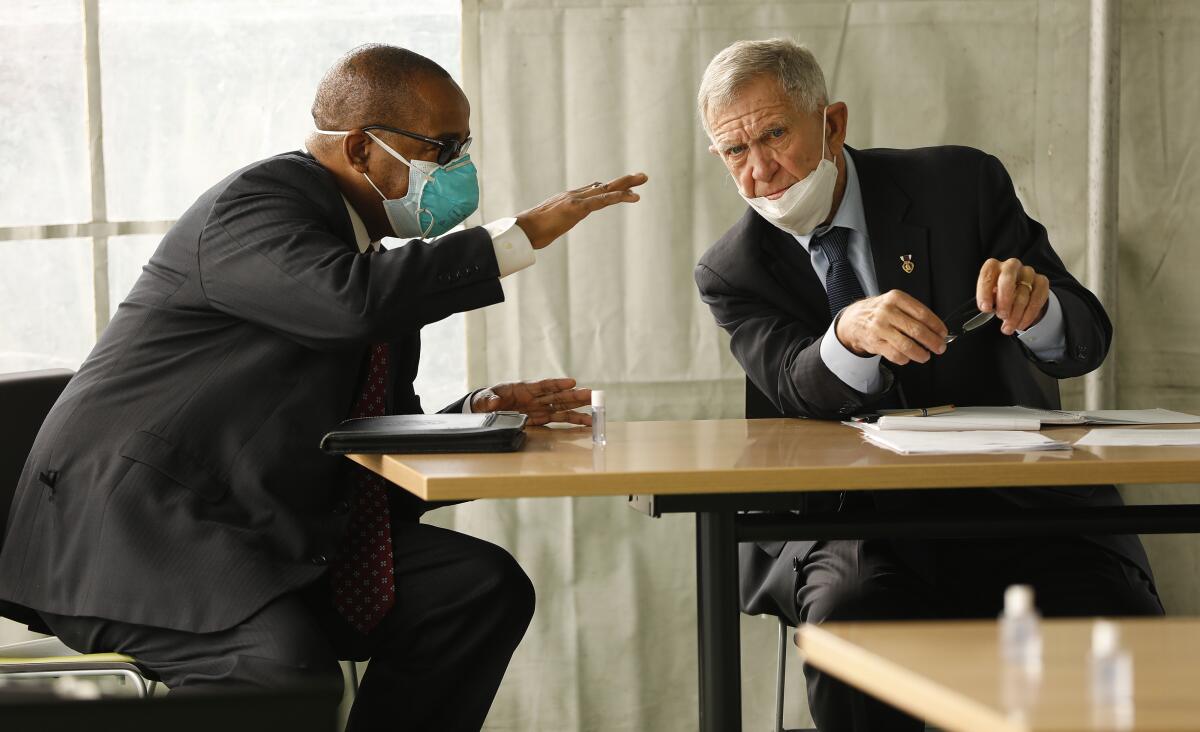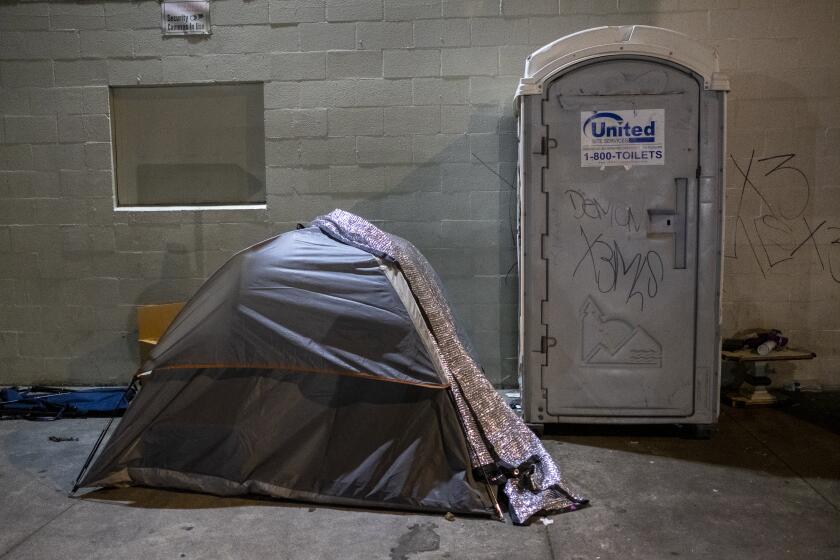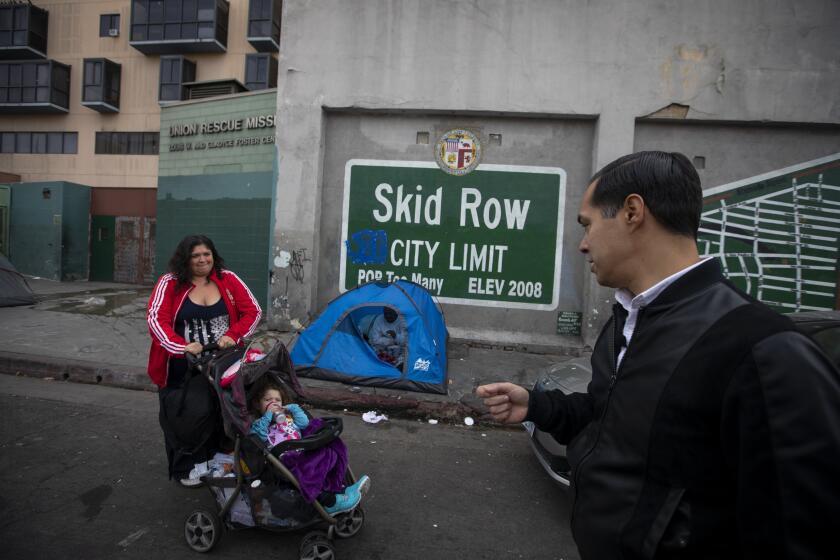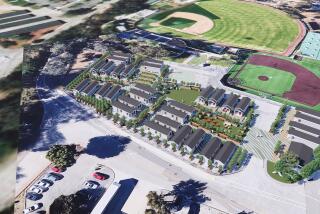Judge rails at L.A. officials for causing homelessness through structural racism. They don’t disagree

- Share via
At a hearing Thursday devoted to structural racism in a federal lawsuit about homelessness in Los Angeles, the defendants offered no evidence to suggest it doesn’t exist.
Neither did the plaintiffs.
Judge David O. Carter said a long, winding road of racism led him to the belief that he had to act and order the city and county of Los Angeles to offer shelter to everyone on skid row by October.
As the defendants, the city and county struck back by appealing the case to the 9th U.S. Circuit Court of Appeal — and won a temporary pause of the deadlines in Carter’s order.
And yet, at Thursday’s four-hour hearing, their attorneys offered no witnesses to push back on the argument central to Carter’s order.
“We’re not going to argue about whether or not there’s structural racism,” said Skip Miller, a partner at Miller Barondess who is an outside counsel for Los Angeles County.
“We don’t have a case or controversy. We have a political question. It’s a political issue.”
Both the city and county have argued in their appeals that the court was overstepping its role. A higher court will eventually weigh in on whether the city and county must meet deadlines set forth in Carter’s order, even as the two entities appeal.
An appeals court panel temporarily freezes the deadlines of a federal order to offer shelter to everyone on L.A.’s skid row by October.
Carter alternated between sugar and acid in his remarks from the bench that were aimed at lawyers and witnesses in the case. At certain points he yelled about money being wasted and inadequate responses to questions he and his special master, Michele Martinez, have asked.
At other points he complimented officials — such as Los Angeles County Supervisor Hilda Solis — about the speed with which they’ve seen projects completed or the efforts of young people cleaning Los Angeles’ streets and reaching out to the unhoused.
Carter implored the city and county, along with the plaintiffs and intervenors, to get in a room and hash out a settlement that would render the specter of litigation moot. He and U.S. District Court Judge Andre Birotte Jr., who has been helping with the sprawling case, said they’d be free day or night to help hash out a deal, which would set forth goals in terms of the numbers of beds the city and county must create to shelter or house people.
Attorneys for the city and the plaintiffs in the case, the L.A. Alliance for Human Rights, which is a collection of residents, business owners and residents that brought the lawsuit last year, said they were enthusiastic. The Los Angeles Times previously reported that two parties had been negotiating in recent months to find a settlement.
Though he offered few details, Senior L.A. City Atty. Scott Marcus said that members of the City Council and members of the Board of Supervisors would be convening to discuss the case.
Still, both the city and the plaintiffs said county attorneys had shown little desire to meet to hash out an agreement.
“This is a new and welcome overture from the county, and we are at the ready and have been for the last year,” L.A. Alliance attorney Matthew Umhofer said.
Miller maintained that the county is already doing as much as it can to help the unhoused population but welcomed the prospect of getting together to talk more.
“We don’t need a lawsuit to tell us to deliver services. We’re going to do it whether there’s a lawsuit or not.”
Will a federal ruling forcing cities to shelter people on the streets be a revolutionary move? Or ill-timed judicial grandstanding?
As the hearing came to a close, and after Carter had shown photos of rats scurrying across skid row and women splayed on the streets, members of the advocacy group Los Angeles Community Action Network, who are intervenors in the case, reminded the audience of its roots and how Carter’s order could end up further cementing racist systems in Los Angeles.
“This case and the plaintiffs take issue with the impact of homelessness by discussing the impact on landlord and property owners,” Legal Aid Foundation of Los Angeles attorney Shayla Myers said.
“This case is about gentrification. It has always been about gentrification.”
Myers went a step further, pointing out that one of the L.A. Alliance’s members just inked a $2-billion development deal on the edge of skid row.
More to Read
Sign up for Essential California
The most important California stories and recommendations in your inbox every morning.
You may occasionally receive promotional content from the Los Angeles Times.









